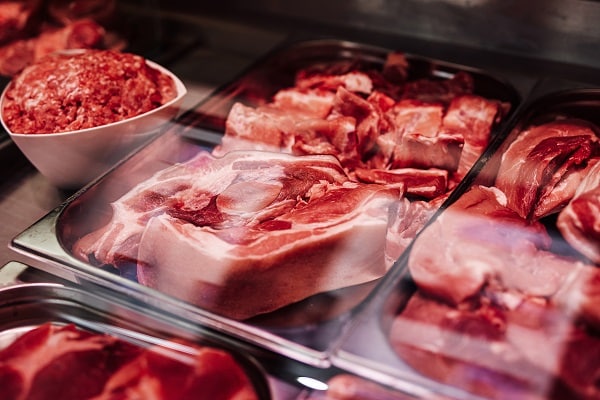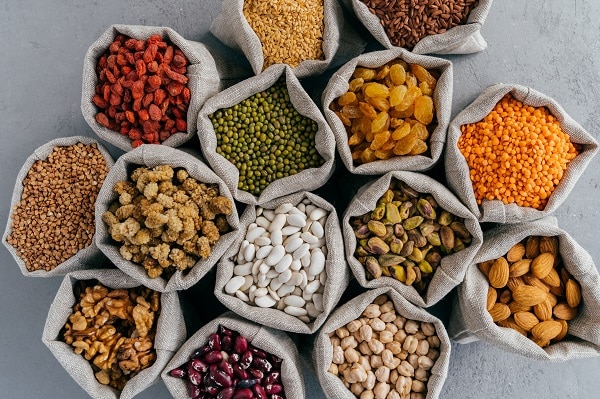The surge in demand in the food market and the inability of the supply chain system to rapidly adapt to the same can be considered one of the many reasons for the hike in grocery prices by day. However, the high grocery bills are ever an issue with most people and therefore cannot be blamed entirely on the market prices alone.
People often connect eating healthy and eating plenty with the high costs they witness, which again is a false notion. So, where exactly does one go wrong when grocery shopping, and how can you prevent it without making fundamental diet and lifestyle changes? The following article discusses ten simple tips and tricks for grocery money saving that can be easily adapted to any lifestyle to cut costs but not essentials. Let’s get started –
Contents
Always Have A Plan

Planning forms the core of your budget grocery shopping goals, and so missing it is a big no-no. This budget planning primarily focuses on avoiding overbuy. To begin with, you will need a detailed shopping list of items that you absolutely need. Basing the list on your weekly or monthly diet plans is another great way to avoid frequent revisits to the store or buying things that are nothing more than an impulse decision.
Another aspect to consider while grocery planning is the leftovers you already have in the kitchen and your plans to utilize them. Check for online sales or coupons that you have for a particular shop that can help you make a more cost-effective purchase on the same item.
Eat Before You Leave

A lot of people don’t understand, but a significant share of impulse buying goods at the grocery store is because of unattended little hunger in your tummy. Having a light snack before you leave the house will give you a sense of satisfaction and fulfillment, helping you avoid impulse buying decisions depending on what seems alluring at the time.
The same bags of chips will seem less tasty and worth purchasing on the shelves when you are full than they would when you are partially hungry. So, be wise or not, at least be packed while you shop.
Visit The Farmers Market And Go Seasonal

It is no news that the same foods, vegetables, or your favorite fruits, will certainly cost you much less when bought directly from the farmers market than at a grocery store. But that’s just the cost-benefit you receive, the freshness and quality of the product you buy is a whole other factor that can make your every purchase more worthy and healthy.
Buying from a farmers market will also give you an idea of the in-season fruits and veggies, which are generally priced much lower in the “season” than other times of the year. Also, know that grocery stores have storage to accommodate a variety, even of off-season goods, increasing your chances of buying a costly mango off-season.
However, if the farmers market is very far from your place, such that the cost of fuel and efforts equate to the money you saved, it is best to hit the grocery store instead, unless you wish to purchase in bulk which would again make the trouble and cost worth it.
Healthy Is Cheap

Unlike popular beliefs, being healthy is not always costly; in fact, it is cost-effective. It works on the fundamentals of reducing the portion sizes by buying less high-calorie foods that are the prime source of additional costs you witness on the bills.
Items like chips, soda, bakery items, etc., from the store, might seem like a good purchase, but considering the little to no nutritional value they serve, they just add numbers to your calories and bill. A way to tackle the issue is to compare foods based on their nutritional values and the servings they will make for. All in all, instead of spending on calories, spend the same on nutrition and see how that works.
Reduce Meat Consumption

There are a number of cost-effective, protein-rich, and vegetarian substitutes for meat that are as healthy, if not more. From eggs to legumes, beans, tofu, etc., a number of inexpensive foods can replace meat in your meals, be it for breakfast, dinner, or lunch.
You can easily make the switch with one meal at a time and slowly adjust meat such that it fits your budget. Buying meat directly from the meat market is also a way to reduce costs.
Avoid Wastage

Wastage can be anything from the extra peel you took off from the veggies to the leftovers you threw in the garbage, and believe it or not; they add up to the cost of your grocery store bills at the end of the month.
The same is true for adding perishable foods to your shopping cart, especially if you are not sure of how and when you will be using them. Expired foods are no good, and therefore, perishable goods that do not sit in your meal plans for the week or month are best away from the cart.
You will also be amazed at how good of a meal leftovers make for, saving you cost, time, and efforts that go into thinking and preparing a meal.
Skip The Major Chains

While branded may mean better for a lot of things in life, the same is not exactly the case for food. Buying from a major chain is less expensive and not a wise decision when you can buy the exact same product for less than half the price at a local chain or store.
Most often than not, brands purchase items from a national brand that meets their specifications and replace the label with increased prices. Therefore, a little research and looking up the ingredient list before you buy something can save you tons, not to mention how you will promote small and national businesses this way.
Although, if it is something you like or something that is not generally available, a major chain is not that bad of an idea every once in a while.
Bulk It And Prepare It From Scratch

Buying in bulk has more benefits than you may imagine. First, it saves you frequent visits to the grocery store, which is a synonym for additional unnecessary purchases. Second, buying in bulk is often cost-effective depending on both packaging of the item and the store you choose to get it from. For example, farmer’s markets almost always have a great deal to make when you purchase goods from them in bulk.
Reducing the take-outs or eating outside, in general, can also save you loads. Instead, try home cooking which is also a lot healthier. If you don’t know cooking or your cooking is not really edible, learning a life skill this way isn’t all that bad. And in case you find cooking troublesome, preparing meals twice a week and preserving them in refrigerators for mealtimes is the way to go.
If You Can Plant, Don’t Buy It

If you love being near plants or better gardening, then growing your own produce already has plenty to offer to you. However, if you don’t love it as much, give it a try just for the mere fact that your hand-grown veggies and fruits will taste like none other; it is the most delicious you will ever taste.
Several fruits and vegetables do not even require you to have a kitchen garden, as they grow pretty well even in small containers that are also easy to manage. They are fresh, pure, free, and tasty; what more does one need?
Avoid Looking For Convenience

Well, how much effort do you think it would take to peel an orange that one would need to buy the already peeled pre-packaged ones that are no different, just costly? Often, the extra cost at grocery stores is not the item but the convenience it comes with. What’s more, this convenience is often something a person does not even need but ends up paying for.
Conclusion
Saving on food might seem like an absurd idea for many, but considering how unnecessary costs add up to the bill without knowledge or use, it is rather a matter of concern. If you are witnessing or are bothered by the high grocery costs, understanding where these come from by evaluating the minimum of the past three months’ bills is the first step to take.
After you have a clear idea of where the wastage lies, you can start saving money on groceries by altering those as well as applying the tips and tricks mentioned above for evident cost-effectiveness. Happy Scrolling!


